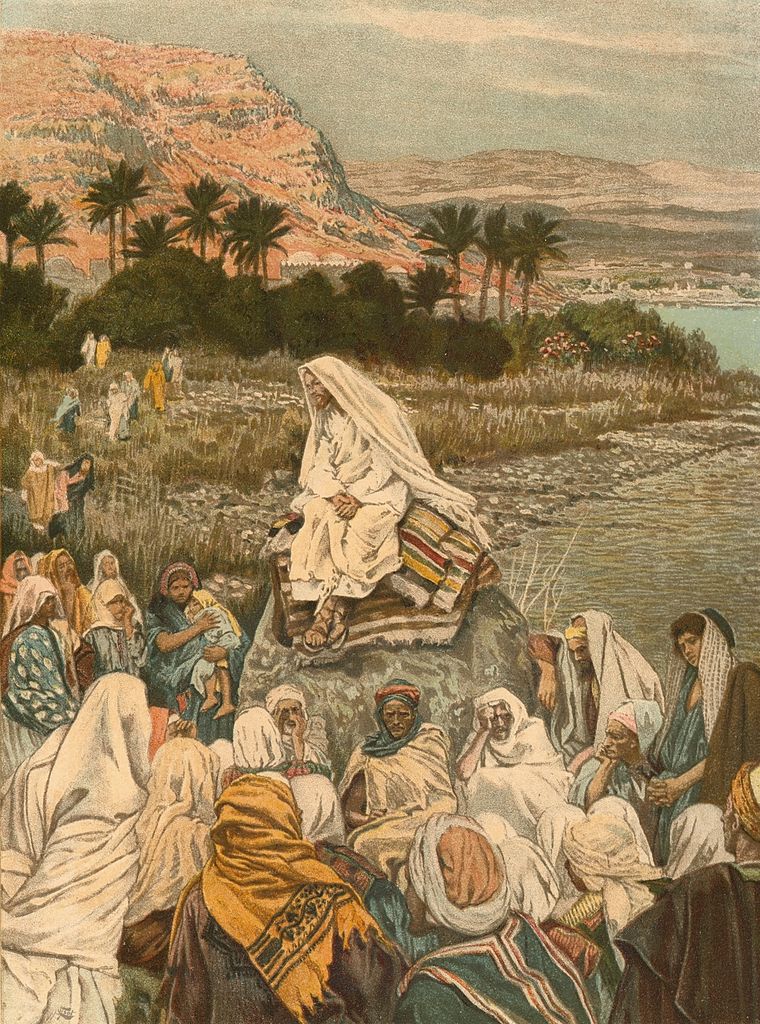KRETZMANN ON MARK 2:18-22
A question of fasting: V. 18. And the disciples of John and of the Pharisees used to fast; and they come and say unto Him, Why do the disciples of John and of the Pharisees fast, but Thy disciples fast not? V. 19. And Jesus said unto them, Can the children of the bride chamber fast while the bridegroom is with them? As long as they have the bridegroom with them, they cannot fast. V. 20. But the days will come when the bridegroom shall be taken away from them, and then shall they fast in those days. The disciples of John, after the rigorousness of their master, were inclined to be very severe in the mortification of their flesh. They may not have done so with the belief that they were meriting much in the sight of God, but the thought of the necessity of such practices was ever present with them. The Pharisees, on the other hand, made their boast of their fasting, Matt. 6, 16; 9, 14; Luke 18, 12. They took a great measure of pride in the fact that they were exceeding the commandment of God in this respect. In addition, they expected others to follow their lead. At this particular time they were fasting. And in carrying out the demands of their self-appointed sanctity, they were kept busy in straightening out the conduct of others instead of attending to their own affairs. They wanted Christ above all to regulate His piety by theirs. And, in doing so, they wanted to hold themselves up as models in order to shine before the people -with their holiness. In this case either the Pharisees, together with the disciples of John, or men that were acting as their representatives, came to Christ. They want to know why the custom of the Pharisees and John’s disciples is not followed in the immediate neighborhood of Christ. They speak of the disciples of Christ, but their criticism is directed against Him. The explanation of the Lord is simple. He is the Bridegroom, in whose company the children of the bridechamber, the best man and his companions, are at the present time, so long as He is in the world. Now they were surely aware of the fact that fasting was commonly looked upon as a sign of bereavement, sorrow, and repentance. It surely would not be right and proper for the disciples, therefore, since they were in the midst of the joys of the marriage-feast, to assume doleful faces as though they had suffered a great and bitter bereavement. That time, indeed, was coming, when the Bridegroom would be taken out of their midst, then they would have reason for showing every manifestation of grief, John 16, 20.
Two parables to emphasize His meaning: V. 21. No man also seweth a piece of new cloth on an old garment; else the new piece that filled it up taketh away from the old, and the rent is made worse. V. 22. And no man putteth new wine into old bottles; else the new wine doth burst the bottles, and the wine is spilled, and the bottles will be marred; but new wine must be put into new bottles. Here a matter of common experience is applied to the case in hand. To sew a patch of new cloth upon an old garment is not only incongruous, but usually aggravates the trouble and causes a further tear at the seam; And to put new wine, grape juice that is in the process of fermentation, into old wine-skins; may easily become disastrous, since the skin is no longer strong enough to withstand the process going on inside. The old, dead orthodoxy of the Pharisees, their righteousness of works, did not fit with the doctrine of Jesus of the free mercy of God in and through Christ Jesus. He that trusts in his works and then intends to patch this up with a few scraps of the Gospel, he that wants to cover up some vice with Christ’s merit, will soon find out that his is a poor comfort. In his heart he is still adhering to the old religion of works, which will drag him down to perdition. And the new wine of the Gospel of the forgiveness of sins for Christ’s sake does not suit the hearts that are still bound up in self-righteousness. If the sweet Gospel of God’s grace is preached to proud, self-righteous hearts, it will surely be wasted, for they cannot and will not accept and believe it, and it is a mystery to them how other people can take delight in that old Gospel of free grace. But where the hearts have been renewed, made entirely new by the power of the Word, there the Gospel will find the reception which it ought to have, there the hearts accept the glorious news of their redemption and are prepared for life eternal.
(Jesus Teaching On The Sea Shore via wikimedia. PD-US)




